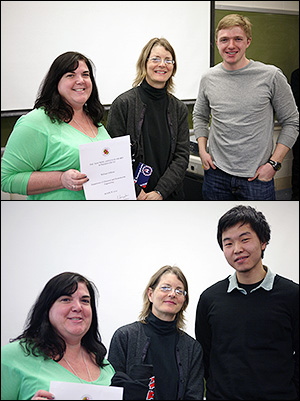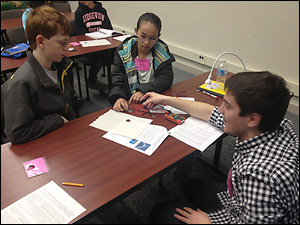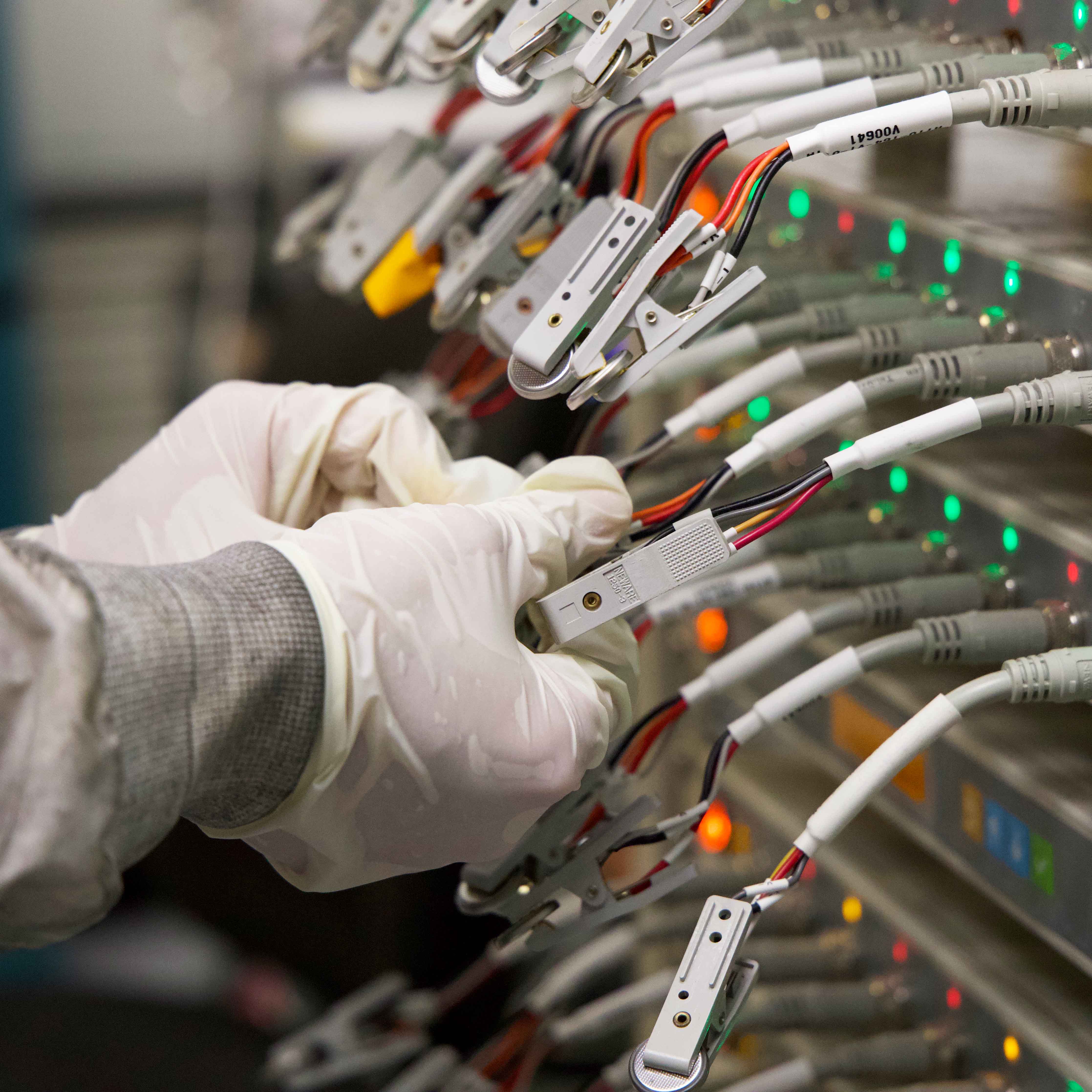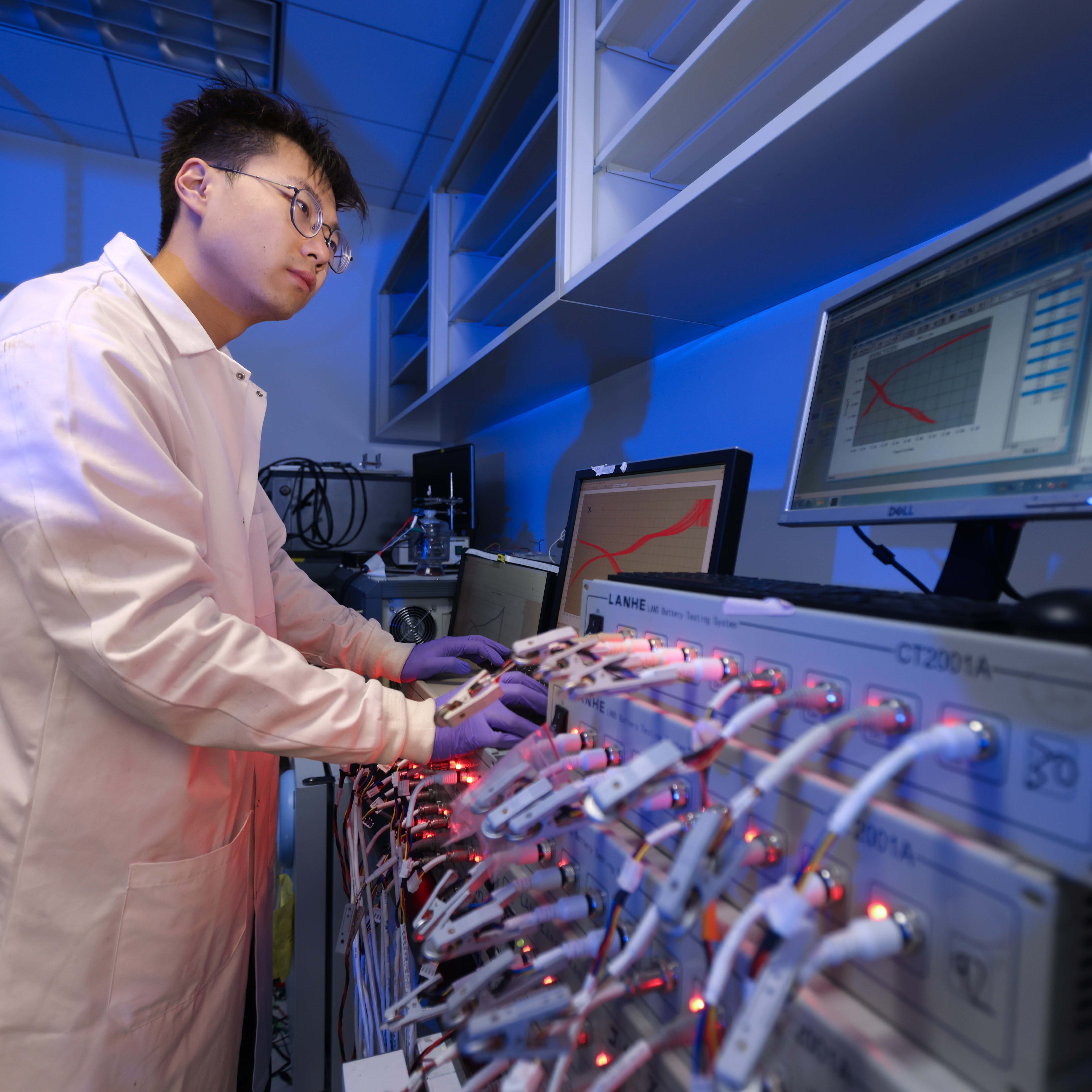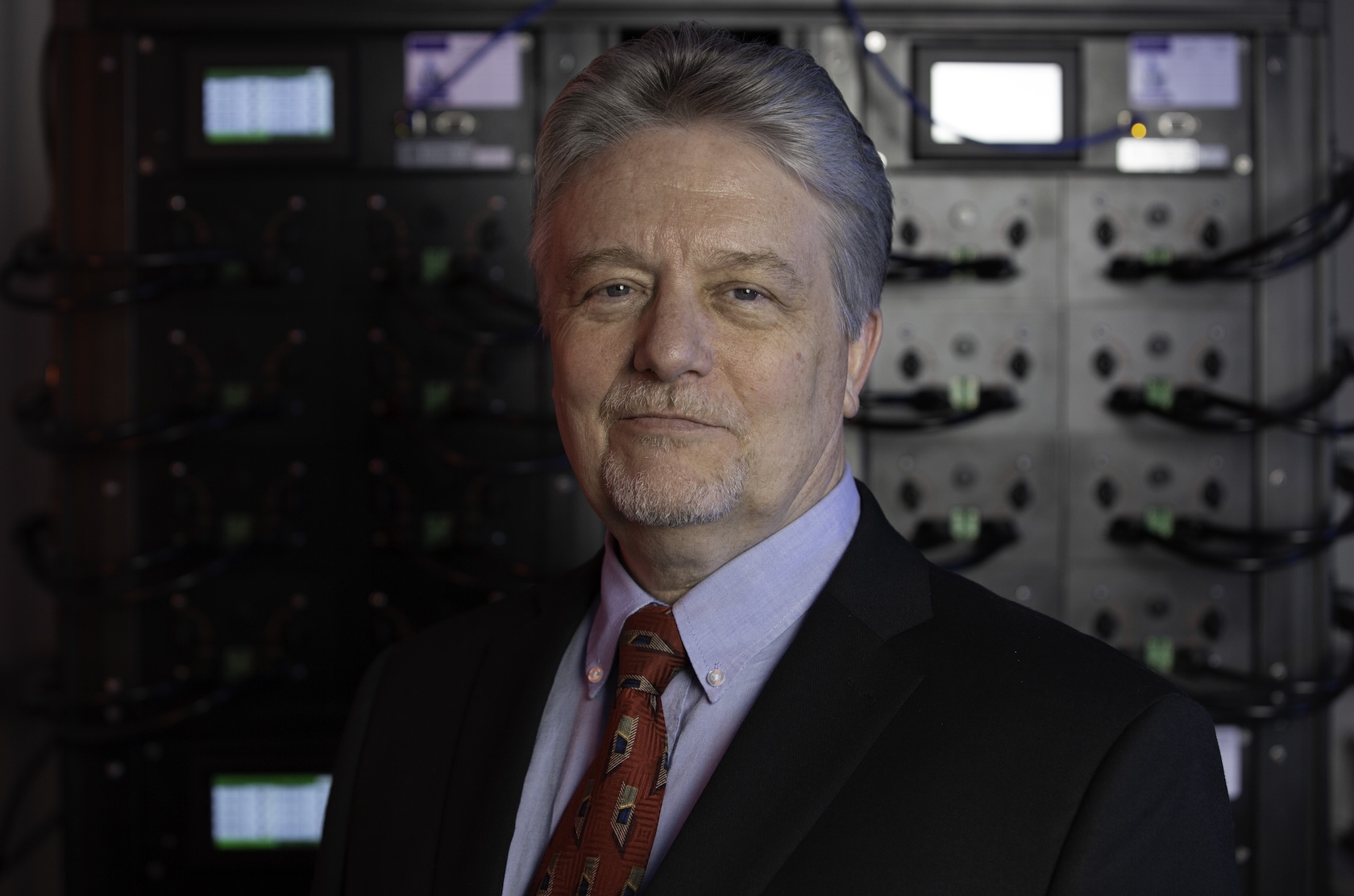News Story
University of Maryland Wins 2012 Hydrogen Student Design Contest
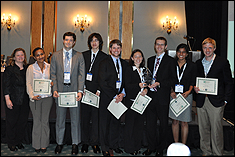
The team, advised by Professor Greg Jackson (Department of Mechanical Engineering and associate director, University of Maryland Energy Research Center), traveled to Toronto, Canada in June, where they received their award and presented their work at the Young Scientist Symposium of the World Hydrogen Energy Conference 2012. ChBE team members included graduate student Will Gibbons (advised by Jackson) and undergraduates Chetali Gupta and Meron Tesfaye.
The Hydrogen Design Contest, which attracted entries from 28 universities in nine countries, challenged students to plan and design a tri-generation system that produces heat, hydrogen, and power for their university campus, using locally available waste resources for primary energy input.
The Clark School team's proposed power plant design would deliver a net output of 1.2 megawatts of power to the campus grid—the equivalent of taking 2,300 cars off the road—and utilizes organic and municipal solid waste via gasification and anaerobic digestion technology. The team worked closely with university facilities managers, including campus-wide energy manager Joan Kowal and recycling coordinator Bill Guididas, to assess the campus energy infrastructure, local waste streams, and possible processing methods.
The team's calculations indicate that implementation of the proposed system could reduce the University of Maryland's carbon emissions by more than 4%, while saving it over $2 million per year in combined heating, electricity, and hydrogen costs.
A paper on the work has been submitted to the International Journal of Hydrogen Energy, the leading peer-reviewed publication in its field.
Organized by the Hydrogen Education Foundation, the annual Hydrogen Student Design Contest challenges university students to develop innovative solutions to key issues facing the hydrogen and fuel cell industries. The competition is supported by the U.S. Department of Energy, the National Renewable Energy Laboratory, the U.S. Combined Heat and Power Partnership, the World Hydrogen Energy Conference, and the International Association for Hydrogen Energy.
Published June 5, 2012


